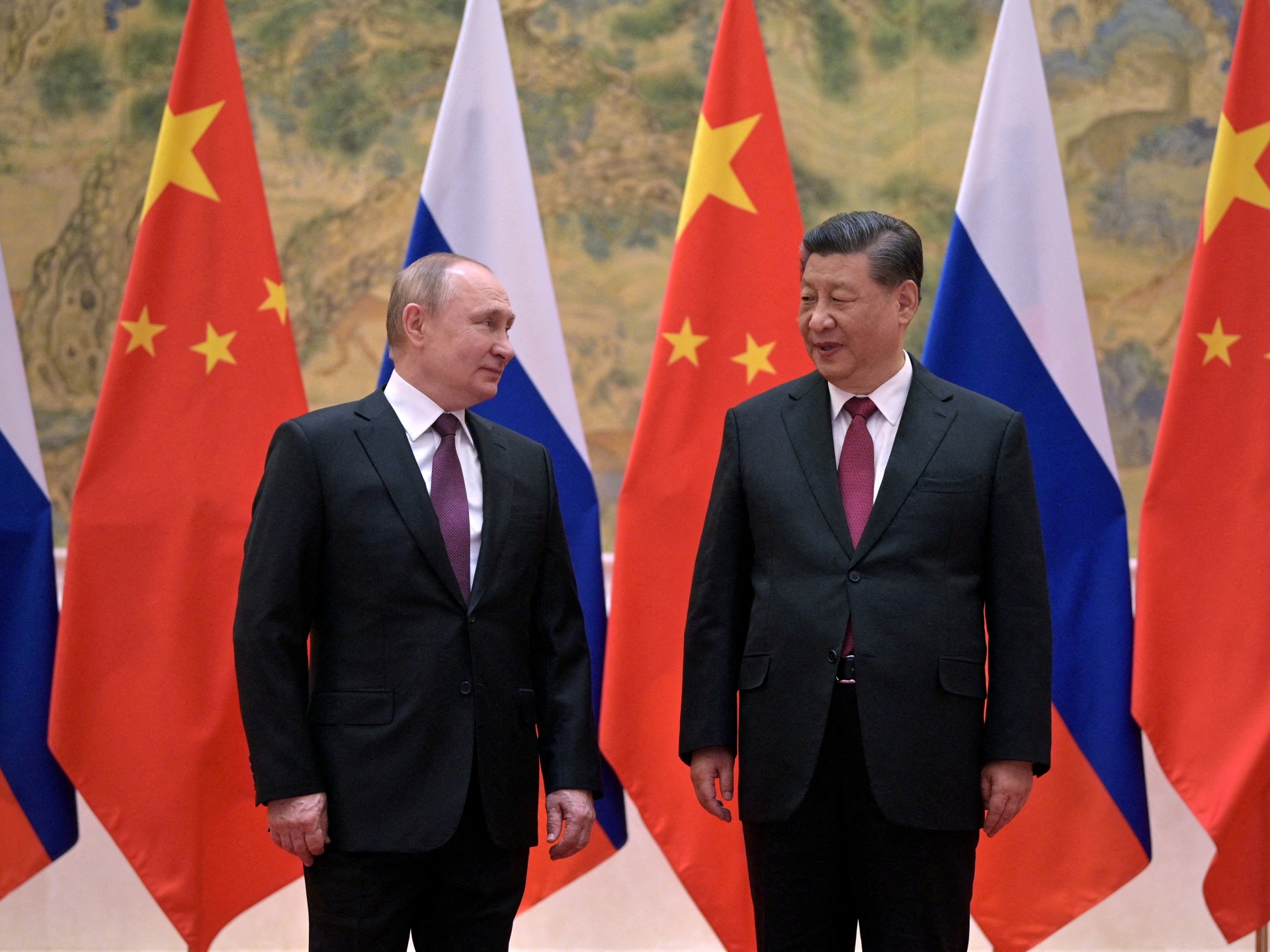Chinese and Russian leaders expected to meet on sidelines of Shanghai Cooperation Organisation summit in Uzbekistan.
Chinese President Xi Jinping and Russian President Vladimir Putin are expected to meet next week in Uzbekistan, as Beijing and Moscow ramp up economic cooperation in the face of Western-led censure and sanctions.
The two leaders are due to meet on the sidelines of the Shanghai Cooperation Organisation (SCO) summit taking place September 15-16, Russian Ambassador to China Andrey Denisov told reporters on Wednesday, according to the Russian state news agency Tass.
The meeting is the latest signal of warming ties between China and Russia, which have declared a “no limits” friendship amid mounting economic challenges at home and increasingly strained relations with the United States and its allies overseas.
On Tuesday, Russia’s state-run energy giant Gazprom said it had signed an agreement with China to settle payments for gas in yuan and roubles instead of US dollars — part of a push by Moscow to lessen its reliance on the US financial system after being hit with numerous rounds of sanctions over its war in Ukraine.
The Xi-Putin talks would be the first time the two men have come face to face since Moscow invaded Ukraine, and come as the Chinese leader is expected to kick off his first overseas trip since the start of the COVID-19 pandemic with a visit to Kazakhstan next week.
The meeting also comes just weeks before Xi is expected to secure an unprecedented third term in power at a key ruling Communist Party congress set for mid-October.
‘Daring’ timing
Alicia García Herrero, chief Asia Pacific economist at Natixis in Hong Kong, said she expected Xi and Putin to announce joint economic projects in Central Asia, potentially including new energy pipelines.
“I think Xi Jinping is going to get something important security and economic-wise in Central Asia,” García Herrero told Al Jazeera, describing the timing of their meeting two months ahead of the G20 summit as “daring”.
“Putin will still sell it as a victory because Xi Jinping is visiting him, or at least meeting him, before Biden. So Putin is going to pay a price in my view.”
García Herrero said the talks could also result in the announcement of Chinese investment or support for certain sectors of Russia’s beleaguered economy.
Russia’s economy has been battered by wide-ranging sanctions, with gross domestic product (GDP) falling by 4 percent in the second quarter.
China’s economy is also under severe strain due to an ultra-strict “zero COVID” strategy that continues to mandate lockdowns and border controls as the pandemic nears its third year.
Beijing has declined to condemn Moscow’s invasion and has opposed sanctions targeting a broad swathe of the Russian economy.
China has also ramped up economic cooperation with its partner, such as by boosting imports of Russian oil and lifting import restrictions on Russian wheat, though some Chinese state-owned financial institutions have distanced themselves from the country for fear of violating sanctions.
Speaking via video at the St Petersburg International Economic Forum in June, Xi said he expected China-Russia trade to set “new records” in the coming months, which was a testament to “the great cooperation between our two nations,” according to a translation by Russian state television.
Qinduo Xu, a senior fellow at Pangoal Institution in Beijing, said the meeting between Xi and Putin signalled that the two countries would continue to pursue a “normal relationship” and shared a “new vision” of the global order.
“China, India are among a total of 15 countries in joining the Russia-led Vostok-2022 military drills in the Far East; China and Russia have agreed on the price of gas supplies via a pipeline from Western Siberia to China. They agreed on the use of yuan and roubles to replace dollars in payments for gas supplies,” Xu told Al Jazeera.
“Their relations are expected to further expand and deepen in a variety of areas with the upcoming summit between the two leaders, mostly due to solid political trust and economic complementarity, and partially because of the US offensives on both Beijing and Moscow.”
